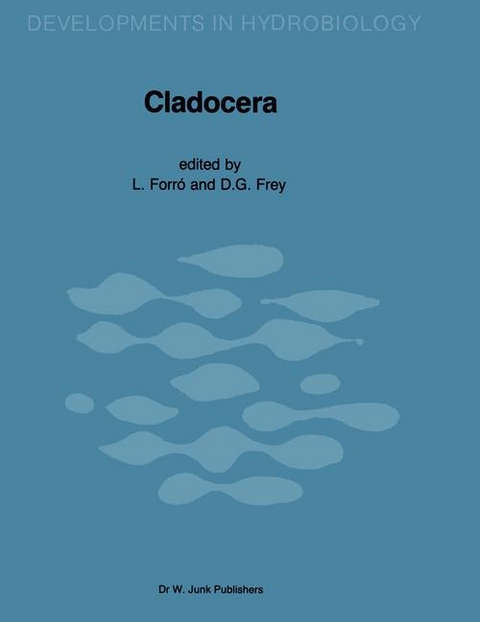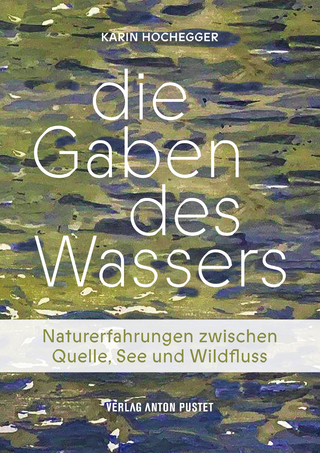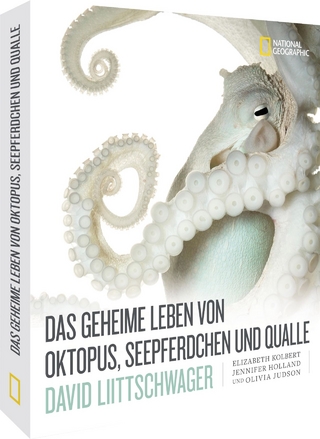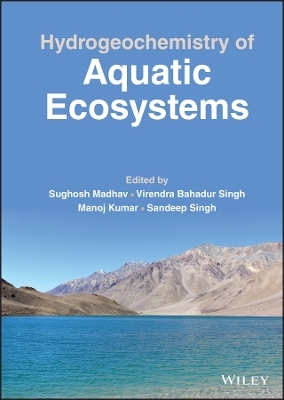
Cladocera
Springer (Verlag)
978-94-010-8292-1 (ISBN)
- Titel wird leider nicht erscheinen
- Artikel merken
There is a strong tendency now for specialists in various groups of organisms, or in various processes and their consequences, to get together at more or less regular intervals to discuss their subjects. This has hap pened e. g. with the Chironomidae, Ephemeroptera, and Plecoptera among the aquatic insects, and the Rotifera, Copepoda, and Ostracoda among the zooplankton. Finally the scientists working with the Cladocera, who have been isolated from one another for a long time except on a personal basis, have decided to do the same, largely through the initiative and drive of L. Forro. Thus, the First International Symposium on Cladocera was held in Budapest on 12-16 August 1985. Most of the roughly 60 attendees were from Euro pean countries, although a fair number came from Australia, Canada, India, Nigeria, and the United States. The accompanying table presents a list of attendees by country of origin. Regrettably, a number of persons who had expressed interest in coming were unable to do so. Their names and, in two instances countries, enclosed in brackets, are given to indicate the overall extent of topics that would have been discussed. Persons who presented papers or posters are indicated by an asterisk (*). The names of persons who chaired sessions are printed in italics. A total of 34 papers and 10 posters was presented, most of which are included in this volume.
Taxonomy & Systematics.- Dr. Jenoe Daday de Dees and the Hungarian hydrobiological research.- The Taxonomy and biogeography of the Cladocera.- Morphology and the classification of the so-called Cladocera.- Review of taxonomic studies on freshwater cladocera from India with remarks on Biogeography.- Revision of three species on the genus Diaphanosoma Fischer, 1850.- A paedomorphic form type of Daphnia triquetra Sars 1903 (Cladocera, Daphniidae) from Mongolia.- The biogeography of Australian Daphnia: clues of an ancient (> 70 m.y.) origin for the genus.- Is ephippial morphology a useful taxonomic descriptor in the Cladocera? An examination based on a study of Daphniopsis (Daphniidae) from Australian salt lakes.- Significance of head and carapace pores in Ceriodaphnia (Crustacea, Cladocera).- Inter- and Intraspecific variations in limb morphology of some south-east Australian cladocerans: Implications for particle capture.- A Far East Moina, M. weismanni Ishikawa, 1896 found in an Italian ricefield.- Scapholeberis erinaceus Daday, 1903 (syn S. echinulata Sars, 1903) and Ilyocryptus alexandrinae sp. nov. in Roumania.- A contribution to the taxonomy of C. sphaericus sens. lat. (Cladocera, Chydoridae).- Chydorus arcticus n.sp., a new cladoceran crustacean (Chydoridae: Chydorinae) from the North Atlantic Arctic and Subarctic areas.- Morphological Differentiation of two new Ephemeroporus species (Cladocera, Chydoridae) belonging to the barroisi complex: E. margalefi and E. epiaphantoii, in Spain.- Moina oryzae n.sp. (Cladocera, Moinidae) from Tamil Nadu (South India).- Distribution & Genetics.- The distribution of chydorid Cladocera in Canada.- Salinity and the distribution of Cladocera in Warri River, Nigera.- Groundwater Cladocera: A synopsis.- The ultrastructure of the so-called olfactory setae on the antennula of Daphnia magna Straus (Crustacea, Cladocera).- Genotypic characteristics of the Cladocera.- Breeding system of Daphniopsis ephemeralis: adaptions to a transient environment.- The possible origin of Daphnia cucullata procurva Poppe 1887 in the lakes of the Pomeranian Lakeland by hybridization in the past.- Interspecific hybridization between Daphnia hyalina D. galeata and D. cucullata and seasonal abundances of these species and their hybrids.- Naturally occurring interspecific hybridization in Simocephalus (Cladocera, Daphniidae): its potential significance.- Ecology, Population Studies & History.- Cladocera: Predators and prey.- Competitive dominance among Cladocera: Are single-factor explanations enough? An examination of the experimental evidence.- Size and shape of Daphnia Longispina in rock-pools.- Feeding and energy budget estimations in Daphnia obtusa.- A population study of Scapholeberis rammneri Dumont and Pensaert (Cladocera: Daphniidae).- Estimation of production and mortality of Bosmina longirostris (O. F. Muller) in the River Danube (Danubiala Hungarica, CIX).- Reproductive variations of Cladocerans in grasslands periodically flooded for irrigation in Mantecal, Venezuela.- Observations on the zooplankton in the reedbelt area of the Neusiedlersee.- A note on the hatching and viability of Ceriodaphnia ephippia collected from lake sediment.- Cladocera in space and time: Analysis of lake sediments.- Alga consumption of our dominant planktonis crustaceans in Lake Balaton (Hungary).- The dead-arm evolution of river systems: A comparison between the information provided by living Copepoda and Cladocera populations and by Bosminidae and Chydoridae remains.- Effects of recent acidification on Cladocera in small clear-water Lakes studied by means of sedimentary remains.
| Erscheinungsdatum | 19.12.2018 |
|---|---|
| Reihe/Serie | Developments in Hydrobiology ; 35 |
| Zusatzinfo | 152 Illustrations, black and white; 362 p. 152 illus. |
| Verlagsort | Dordrecht |
| Sprache | englisch |
| Maße | 216 x 280 mm |
| Themenwelt | Naturwissenschaften ► Biologie ► Limnologie / Meeresbiologie |
| Naturwissenschaften ► Biologie ► Ökologie / Naturschutz | |
| Schlagworte | Danube • Ecology • Environment • groundwater • Plankton |
| ISBN-10 | 94-010-8292-8 / 9401082928 |
| ISBN-13 | 978-94-010-8292-1 / 9789401082921 |
| Zustand | Neuware |
| Haben Sie eine Frage zum Produkt? |
aus dem Bereich


